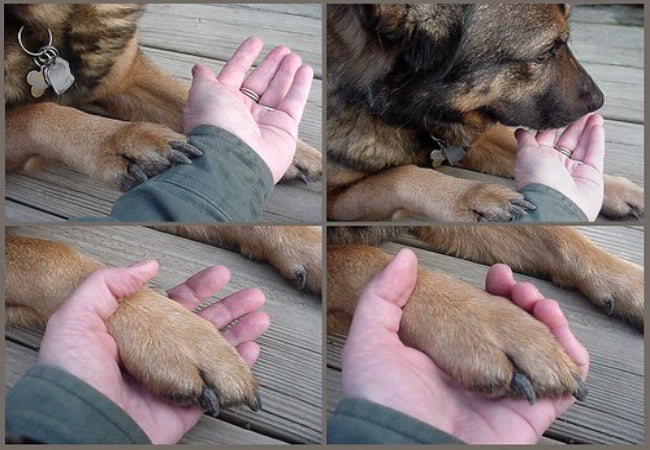Dog Licking Paws 2025: What’s Normal, What’s Not & How to Help 🐶✨

In this article
Dog Licking Paws 2025: What’s Normal, What’s Not & How to Help 🐶✨
By Dr. Duncan Houston BVSc
A little paw licking is normal—but if your dog is constantly chewing, biting, or obsessively licking their feet, it may be time to intervene. Excessive licking can signal allergies, anxiety, or even infection.
I’m Dr. Duncan Houston, veterinarian and founder of Ask A Vet. Let’s break down the reasons behind paw licking, when it becomes a problem, and how to give your dog some much-needed relief.
🐾 When Is Paw Licking Normal?
- Occasional grooming or cleaning after walks
- Short episodes after playing outdoors
- Licking before or after sleeping
🚩 When It’s a Problem
- Licking becomes frequent or obsessive
- Paws are red, swollen, or stained from saliva
- The dog is limping or sensitive when you touch their feet
- Hair loss or crusting between toes or pads
🔍 Common Causes of Paw Licking
1. Allergies
- Environmental: Grass, pollen, dust mites
- Food allergies: Protein sources (e.g., chicken, beef)
- Often affects paws, ears, and belly
2. Yeast or Bacterial Infection
- Warm, moist areas between toes are perfect for microbes
- Signs: foul odor, brown discharge, red skin
3. Parasites
- Fleas, mites (demodex or sarcoptes), ticks around the paws
4. Pain or Injury
- Foreign object (e.g., grass seed, thorn)
- Cracked pads, torn nails, arthritis
5. Anxiety or Compulsive Behavior
- Some dogs lick as a self-soothing habit
- Often tied to boredom, separation anxiety, or under-stimulation
💊 How Vets Treat Paw Licking
- Topical or oral antibiotics/antifungals for infections
- Anti-itch medications (Apoquel, Cytopoint) for allergies
- Diet trials for food sensitivity (12 weeks minimum)
- Anti-anxiety medications or behavior training for compulsive licking
🛠️ At-Home Management Tips
- Rinse paws after outdoor walks (especially in allergy season)
- Use paw balms to soothe cracked or irritated skin
- Prevent access with cones or booties if needed during healing
- Increase mental and physical stimulation daily
❌ What NOT to Do
- Don’t use human creams or antiseptics (toxic if licked)
- Don’t delay vet care if there’s odor, blood, or swelling
- Don’t punish licking—it may be anxiety-driven
🔗 Helpful Tools from Ask A Vet
- Explorer Harness – Designed for comfort and control during walks for sensitive-pawed pups
- Ask A Vet – Upload photos of paws, track symptoms, and get vet advice within minutes
📋 Summary Excerpt
Occasional paw licking is normal—but constant chewing isn’t. A vet explains what causes it, how to treat the root issue, and how to help your dog feel better fast.
❓ FAQs
-
Q: Why does my dog lick just one paw?
A: There may be a foreign object, wound, or localized infection. Get it checked if it persists. -
Q: Can allergies cause dogs to lick their paws?
A: Yes—paws are one of the most common allergy hotspots, especially in spring and summer. -
Q: How do I stop my dog from licking their paws at night?
A: Identify the cause first. Then use calming routines, booties, and vet-recommended treatments as needed.






